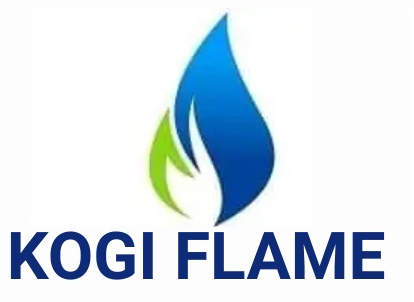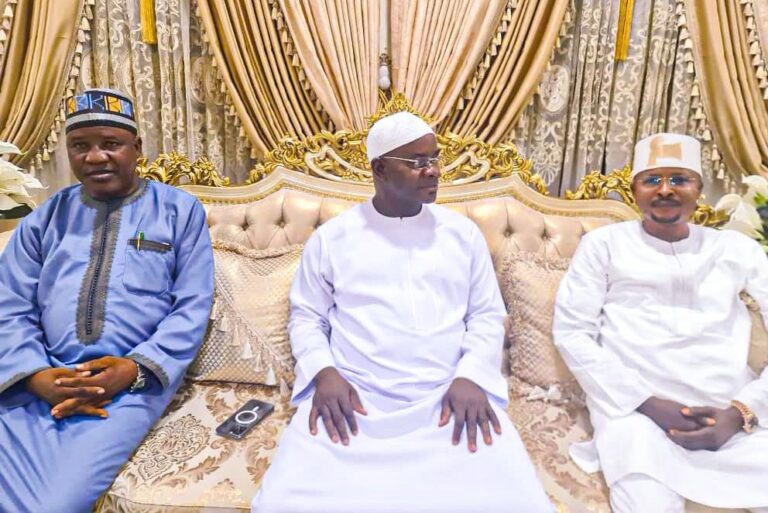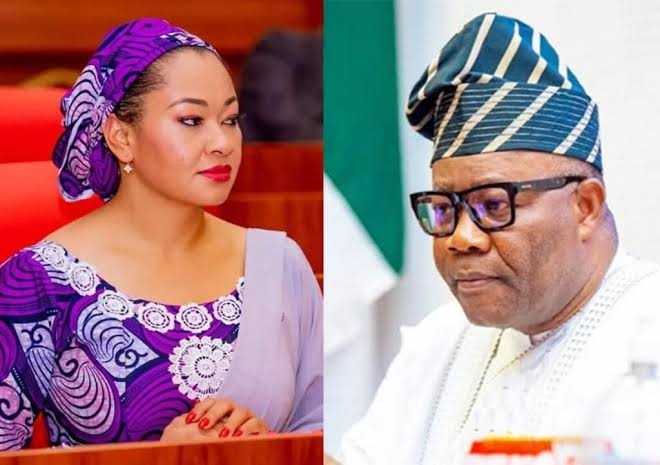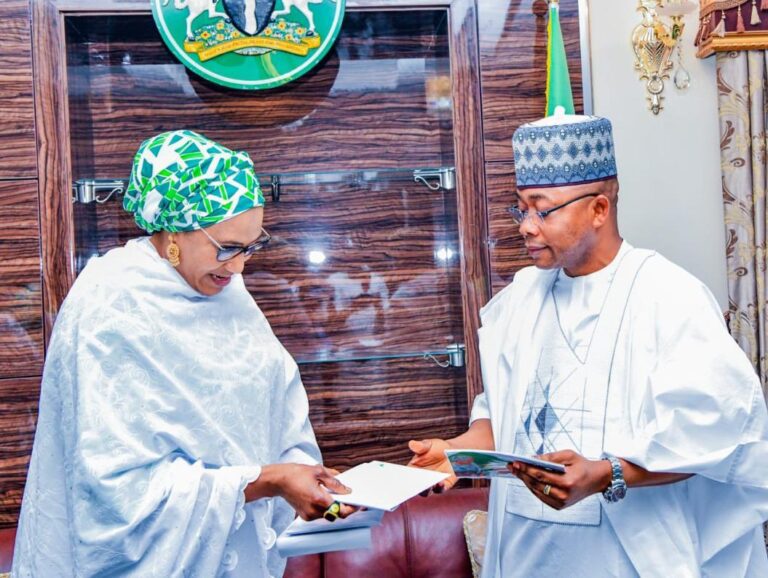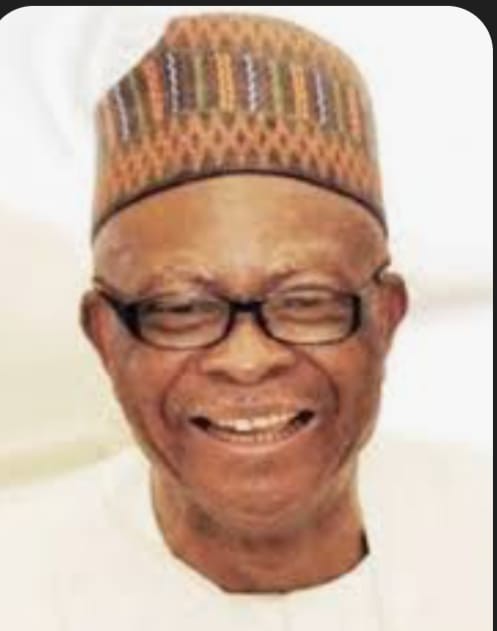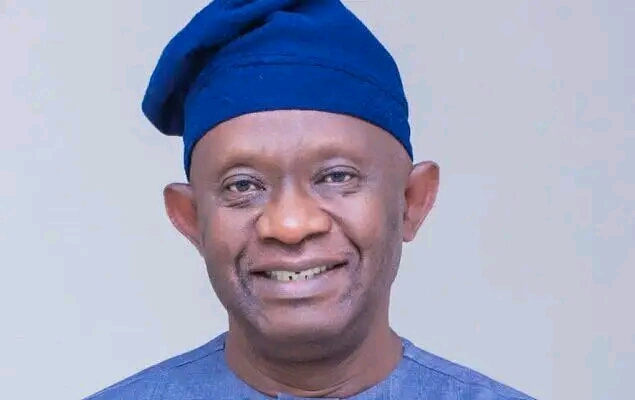Warning: Attempt to read property "post_excerpt" on null in /home/kogiflam/public_html/wp-content/themes/morenews/single.php on line 55


By Anjorin Abiodun
The best invention in the electoral management process is the provision to seek redress through the instrumentality of law. Where a party to an election is dissatisfied with the procedures and outcome, he can approach an election petitions tribunal.
Similarly, there is no better invention by man to guarantee fair trial like the hierarchical order of courts. In other words, if a litigant feels denied of fair hearing, he has every right of appeal up to the level the constitution permits.
The November 16, 2019 governorship election in Kogi State was more of a straight fight between Alhaji Yahaya Bello of the All Progressives Congress (APC) and Musa Atayi Wada of the People’s Democratic Party (PDP). The results of the election showed that Bello of the APC emerged winner having polled 406, 222 votes to defeat the PDP candidate, Wada, who polled 189, 704 votes, a margin never witnessed in the annals of political victories in the State.
The unity he built he built for four years spoke on the day of his election as the Governor won in LGAs across the three Senatorial Districts, including the Senatorial District of his main challenger, Engr Musa Atayi Wada , who is currently embroiled in the legality and validity of the ticket he used to enter into the Governorship contest ring.
Disatisfied with the outcome of the election, the PDP and its candidate explored legal option by challenging the victory of Governor Bello at the governorship election petitions tribunal which sat in Abuja.
On May 23, 2020, the tribunal affirmed the declaration and return of Yahaya Bello by the Independent National Electoral Commission (INEC) as the validly elected Governor of Kogi State in the November 16 2019 governorship election held in the state. The judgement did not come as a surprise to the people of the State who knew they voted for their Governor.
The tribunal, in a split judgement of two to one, dismissed the petitions of the People’s Democratic Party (PDP) and its candidate, Engineer Musa Wada, against the outcome of the poll for lacking in merit.
Chairman of the tribunal, Justice Kashim Kaigama, who delivered the beautiful and sound majority judgement with another member of the three-member panel, Justice Baraka Wali, threw out the petitions filed by Wada and the PDP on December 7, 2019 on the ground that the petitioners failed woefully to prove the grounds of their petition. They, therefore, awarded a cost of N500,000 against the petitioners in favour of the respondents.
But in his dissenting judgment, Justice Ohimai Ovbiagele upheld the petitioners’ case by nullifying the results in seven out of the 21 Local Government Areas in the state. He ordered INEC to withdraw the certificate of return issued to Governor Bello, just as he asked the commission to conduct a fresh election in seven Local Government Areas within three months.
In the petitions before the tribunal, they alleged that Governor Bello was not duly elected by majority of the lawful votes cast at the said governorship election in Kogi State.
“That the election was invalid by reason of non-compliance with the provisions of the Electoral Act 2010 (As Amended); that the election was invalid by reasons of corrupt practices with the provisions of the Electoral Act 2010 (As Amended)’’.
The petitions contain several allegations of corrupt practices. In support of their allegations, the petitioners lodged several truckloads of documentary evidence. They however called 32 witnesses, including two INEC staff subpoenaed to produce document and to testify, witnesses that alleged over voting in various polling units, 17 witnesses that alleged cancellation of results and two expert witnesses.
Curiously, virtually all the witness statements on oath adopted before the tribunal in proof of the above allegations of corrupt practices were drafted in a repetitive chorus, thereby seeming to mimic themselves. Truth will always shine better when challenged.
The petitioners therefore asked the tribunal to nullify the election by reason of substantial non-compliance with the provisions of the Constitution and extant Electoral Act 2010 (As amended) and an Order fresh election.
However, Governor Yahaya Bello had through his lawyer, J.B. Daudu (SAN), filed a reply on January 7, 2020 denying all allegations of electoral malpractices made in the petition.
The governor also stated that contrary to the petitioners’ allegations, the said election was conducted in substantial compliance with the provisions of the Electoral Act 2010 (as amended) and that he was in consequence, duly elected by a majority of lawful votes cast thereat. Consequently, he urged the Tribunal to dismiss the Petition with substantial costs.
In his final written address, Governor Bello’s lawyer noted that Wada’s petition is replete with complaints of over voting. The former Nigeria Bar Association President drew the attention of the tribunal to the irrefutable position of the law which states that the burden or onus is on the petitioners to prove their petition. He contended that the petitioners merely dumped the bulk of their documentary evidence on the Tribunal without relating them to the averments in their Petition.
However, both the majority decision and dissenting judgement of the Tribunal delivered on May 23, 2020 were premised on the “Expert Witnesses” evidence of PDW19 contained in a report marked Exhibit185.
Justice Gumna Kashim Kaigama who delivered majority decision in conjunction with Justice Baraka Wali described the expert evidence as unreliable and consequently ordered the evidence to be discountenanced and held that Wada “failed to prove beyond reasonable doubt the allegations of over-voting and multi-thumb printing’’.
In contrast, Justice Ohimai Ovbiagele delivered what some legal experts have alleged to be partisan and personal verdict against the respondents when, without reservation, he declared: “I hold without the slightest hesitation that his (PWD19) testimony is sure straight forward, unbroken, uncomplicated and consistent with an election that was deeply flawed’’.
Curiously, Justice Ovbiagele did not put anybody on trial for electoral offences but sentenced them in the course of adjudicating on PDP and Wada’s petitions. He held as follows: “The testimonies of other witnesses added to the litany of infractions perpetrated by thugs and other criminal elements in the aforesaid election. There are tons of corrupt practices’’.
According to the ‘Academic Journal of Interdisciplinary Studies’ (Vol 3, No 1 (2014), Patoari), “a judge is a pillar of an entire justice system and the public expects highest and irreproachable conduct and pronouncement from anyone performing a judicial function’’.
Daudu (SAN) had in his final submission listed several pitfalls in the evidence of PW19 which coincidentally corroborated with the records and conclusions in the tribunal’s lead judgement delivered by Justice Kaigama who held that the expert witnesses evidence lacks merit and should consequently be thrashed in the dustbin.
He stated that the expert witnesses to start with did not, going by their admission, play any role and were not present at any of the principal stages of the election, i.e. accreditation, voting, collation, announcement or declaration of result in any of the polling or collation stations in Kogi State.
He told the Tribunal that the people the petitioners dubbed as “Expert Witnesses are not necessarily experts in the professional fields relevant to the alleged expert evidence they gave before the Tribunal. It is a mere categorisation, adopted as a label for easy identification of the 2 witnesses called by the Petitioners to give supposedly pivotal evidence on the alleged corrupt practices and non-compliance with the provisions of the Electoral Act, which are the major grounds upon which the Petition is premised’’.
He also pointed at the contradictions and absurdity in the testimony of PW19, when he said, “The Forensic team arrived Lokoja on the 5th January 2020 to commence work on Monday 6th January 2020. The team reported to INEC Office Lokoja, Kogi State on Monday 6th January 2020, but could not commence the exercise until Friday 10th January 2020.” This, he said, is because the Tribunal granted an exparte order to the petitioners for Professor Tanko – PWD19 to commence his forensic analysis on January 18, 2020, but recorded above dates in his report.
The main contention of the dissenting judge, Justice Ovbiagele, is that none of the respondents’ lawyer attempted to challenge or controvert the finding or opinion of the expert witnesses.
But Justice Kaigama approached the adoption of the expert witnesses’ evidence differently. He declared the entire evidence of the expert witnesses as lacking probative value on the grounds that their origin is faulty. It is trite law that you cannot build something on nothing as the whole edifice will collapse.
Justice Kaigama said, “A Court is not bound by evidence of an expert witness. The Court has an opinion in the matter, an opinion which it has to exercise judicially and judiciously in the light of other available evidence…”
He held that under Section 68 of the Evidence Act 2011, the evidence of an expert on matters of handwriting or finger print impression is admissible and can be relied upon in arriving at a decision over a matter.
For instance, the judge said, “PW19 could not tell when and where the over-voting and multiple thumb printing were carried out neither could he tell how and who did the thumb printing”, adding however that “this is not surprising as he was nowhere in Kogi State on the 16 of November, 2019”.
Drawing from that, His Lordship said, “Sixthly, evidence of an expert can only be adopted in conjunction with other pieces of the expert opinion. The Petitioners did plead over voting but failed to produce any iota of evidence outside exhibit P185 in support of their contention. See Ngige Vs. Obi Supra. By reason of the relationship the Petitioners have established between them and PW19, the report exhibit 185 is capable of manipulation and fabrication”.
Arriving at his conclusion, Justice Kaigama ruled: “In view of the foregoing, we view exhibit P185 with circumspection and accordingly we hereby jettison exhibit P185 in its entirety. Having found that exhibit P185 as having no probative value, the same fate shall equally befell exhibit P196 the statistician report, and is also discountenance.
“Suffice it to state further that Exhibit P196 is documentary hearsay and is hereby discountenance. PW32 Joe Agada who as the State Collation Agent of the 2nd Petitioner merely replicated the averments as contained in the Petition which is 500 plus paragraphs.
“In the final analysis, we find and hold that the Petitioners have failed to prove beyond reasonable doubt the allegations of over-voting and multi-thumb printing. The result is that the Petition fails and is hereby dismissed. Costs assessed at N500,000.00 in favour of each of the 2nd and 3rd Respondent’’.
Consequently, Justice Kaigama declared and affirmed the declaration and return of Yahaya Bello by INEC as the duly elected Governor of Kogi State having scored the majority of the valid votes cast at the November 16th, 2019, elections.
In all intent and purposes, courts and tribunals don’t adjudicate on matters based on hearsay and emotion. The learned men of the bench are thoroughly steeped in the knitty gritty of law to be swayed by sheer emotions and lies. Justices of the highest court in the land, Supreme Court, have held severally that a court of law is not a Father Christmas that should be gifting frivolous reliefs sought for.
PDP and Engr Musa Wada have since proceeded on appeal. However, experts are of the view that his appeal will still fall like pack of cards because the grounds of the petition is defective in the first instance and does not stand thorough scrutiny, even of a deu Ken judge.
First, the election of which he is contesting the result in court was adjudged free, fair and credible by both domestic and international observers. Is Engr Wada claiming that the opinions of thousands of observers who gave the election pass mark are wrong and only him is right? But in law, no matter how defective a petition is, it must be given its due attention.
Great respect for the learned panel member who gave the dissenting judgement nullifying Bello’s victory and ordering INEC to withdraw his certificate of return, but going by the submission of his learned colleagues in the panel who affirmed the election, he seemed to have stood justice on its head by innocently buying into the gimmicks of the petitioners and their witnesses.
Come to think of it, if the petitioners claimed that election was marred by violence, what is their justification for asking for the deduction of the so-called 240,000 unlawful votes from Governor Bello?
The Exhibits P146 and P147, in which the petitioner tendered a video evidence is ridiculous. In a technologically driven world, where manipulation is possible, reliance on doctored and unverified video as evidence is entirely wrong.
Agreed that where there are established cases of violation, a rerun can be ordered but in the election under review, calling for a rerun in an election won by a landslide amounts to miscarriage of justice.
As Their Lordships at the appellate court get set to decide the matter, it is believed that they would heed to the clarion call of the apex court justices who have not minced words in insisting that at all times the court should rise and do justice in a way that substantial justice is not sacrificed on the altar of technicalities.
Anjorin Abiodun, a Public Affairs Commentator writes in from Abuja
